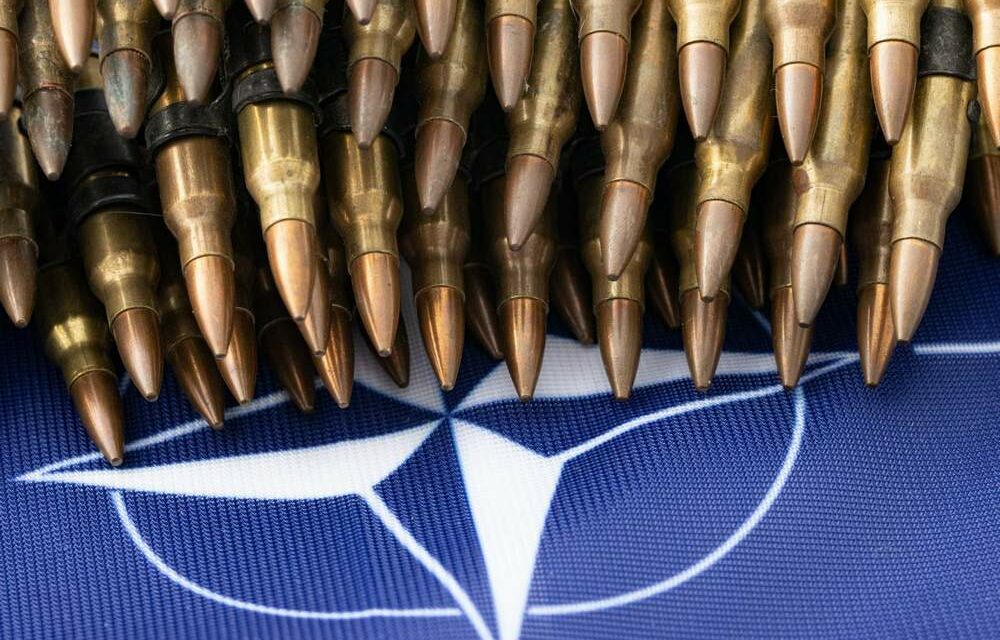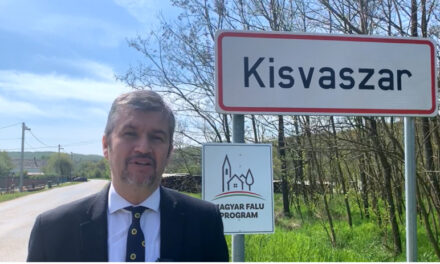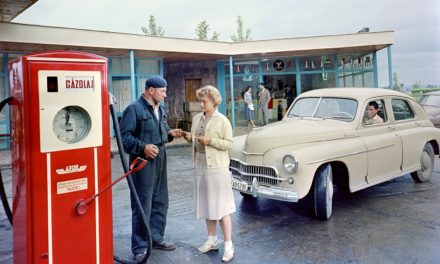The process leading to the war actually began when the American-German promise to Gorbachev, according to which NATO would not expand one centimeter to the east, was violated by the West.
Both in the Western media and in the domestic opposition, the Russian-Ukrainian war began in February 2022 when Putin, without any reason, brutally attacked Ukraine with the aim of restoring the former empire of the tsars. All war-related value judgments in the mentioned media start from this narrative, which is understandable, but very far from the truth. The process leading to the war actually began when the American-German promise to Gorbachev, that is, that if a united Germany could remain a member of NATO, then NATO would not expand even one centimeter to the east, was violated by the West. First, only three countries, and then almost all the countries of Central and Eastern Europe, including the former Soviet republics, were admitted to the organization, and thus NATO expanded to the borders of Russia.
The Russians protested against the expansion from the beginning, but tolerated it because there was nothing else they could do. A turning point was Ukraine's invitation to NATO,
which was decided at the NATO summit in Bucharest in 2008, moreover, this step was opposed by all the countries that created the European Economic Community (ie Germany, France, Italy and the Benelux states), as well as Hungary, but they were not strong enough or they are determined to resist the American pressure, or rather the pressure of the George W. Bush administration. Two-thirds of Ukraine's population opposed NATO membership, and it took a coup in 2014 to bring to power a government in Ukraine that then willingly followed the demands of the American elite.
This story - pro memoria - should be told at the beginning of almost every article discussing the Russian-Ukrainian war, so that we don't forget where the events started and what the situation was when history could have turned out differently. This is clear from the debate on NATO expansion in the US Senate in the fall of 1997, which I have already described in part in two follow-up articles (May 26 and 30), and now - as promised in the previous article - I will continue with the views of the most authoritative opponent of the expansion.
Its most authoritative opponent was George F. Kennan.
George F. Kennan was born in 1904 in Milwaukee, Wisconsin, his father's name was Kossuth Kent Kennan, a name that does not refer to his Hungarian origin, but to honor Lajos Kossuth. Kennan was undoubtedly a very talented person, at the age of 21 he already worked for the United States foreign policy service, soon at the American embassy in Switzerland, and then in the most critical times he was in the foreign service in the Soviet Union, Germany and several other Central and Eastern European countries. During his work, he learned Russian, German, French, Polish, Portuguese and Norwegian.
He received many accolades, but
what he is really famous for is the ideological foundation of the Cold War and his role in the development of the Marshall Plan.
Seeing Stalin's terror and communist ideology firsthand, he wanted to protect the United States and Western Europe from it. In two essays written in 1946 and 1947 (Long Telegram, The Sources of Soviet Conduct), he expressed his views and developed the philosophy of "containment", which later became the theoretical basis of the Cold War. In order to prevent the spread of communist ideology in Western Europe (probably remembering the effect of the peace that ended the First World War on Germany), he proposed and advocated that the war-ravaged European countries receive significant economic aid in order to avoid mass discontent. This idea was then called the Marshall Plan after US Secretary of State George C. Marshall during its implementation.
However, Kennan envisioned the policy of isolation not as a military confrontation, but as preventing the spread of communist ideology, and he soon came up against the official American foreign policy, opposing, for example, the Vietnam War, the arms race, the Iraq War, and - for which we now mention - fiercely opposed NATO expansion.
In the 1997 Senate debate, several people, such as Minnesota Senator Wellstone, Ambassador Jack Matlock, Admiral Jack Shanahan, University of Pennsylvania Professor Alvin Rubinstein, Johns Hopkins University Professor Michael Mandelbaum referred to it, especially a few months earlier in February 1997, the for an article published in the New York Times entitled A Fateful Error. In this article, Kennan, then 93, writes:
"At the end of 1996, the impression was created, or the impression was created, that somehow and somewhere a decision was made to extend NATO to the borders of Russia."
All this despite the fact that no official decision can be made before the next (1997) summit of the association in June.
The timing of this disclosure coincides with the presidential election and the corresponding change in Washington's responsible personalities, which does not make it easy for an outsider to figure out how and where to insert a modest comment. The certainty given to the public that the decision, no matter how preliminary, is irrevocable, is also not an incentive to express an external opinion.
However, something extremely important is at stake here, and perhaps it is not too late to put forward an opinion which, I believe, is not only mine, but also shared by many other people with extensive and in most cases more recent experience in Russian affairs. This view, to put it bluntly, is that
NATO expansion would be the most fatal mistake of American policy in the entire post-Cold War era.
Such a decision is expected to fuel nationalist, anti-Western and militaristic tendencies in Russian public opinion; adversely affects the development of Russian democracy; it restores the atmosphere of the Cold War in East-West relations and steers Russian foreign policy in a direction that is definitely not in our interests. And last but not least, it can make Start II much more difficult, if not impossible. the ratification of the agreement by the Russian Duma and the further reduction of nuclear weapons.
It is certainly unfortunate that Russia should face such a challenge at a time when the executive branch is in a state of high uncertainty and paralysis. And it's doubly unfortunate when you consider that this step isn't necessary at all.
Why should the question of who allies with whom, and consequently against whom, in a fantasy-born, totally unpredictable and highly improbable future military conflict, be at the center of East-West relations, given the hopeful opportunities created by the end of the Cold War?
I am of course aware that NATO is negotiating with the Russian authorities in the hope of making the idea of enlargement tolerable and acceptable to Russia. In the current circumstances, one can only wish these efforts success. But anyone who seriously monitors the Russian press cannot ignore the fact that neither the public nor the government is waiting for the planned expansion to materialize and will react to it as soon as possible.
The Russians are little impressed by American assurances that the expansion does not reflect hostile intent.
They see that their prestige (which has always been the most important in the eyes of the Russians) and their security interests would be harmed. Of course, they would have no choice but to accept expansion as a military fact. But they would still see this as a rejection of the West and would probably look elsewhere for guarantees of a safe and hopeful future.
Obviously, it will not be easy to change a decision that has already been taken or tacitly accepted by the 16 member states of the alliance. But there are still a few months until the decision is finalized; perhaps this period can be used to modify the proposed expansion in a way that would mitigate the adverse effects it is already having on Russian public opinion and politics.”
At the time of writing the article, the expansion of NATO had already been decided somewhere, the debate in the Senate only served the appearance of observing democracy.
Nevertheless, it is worth listening to the opinions of those senators and other political actors who tried to prevent America from making the fatal mistake indicated by Kennan, even at the last moment, the following continuation lists their arguments.
Author: Károly Lóránt, economist, advisor to the National Forum
Source: Magyar Hírlap
Photo: unsplash.com













